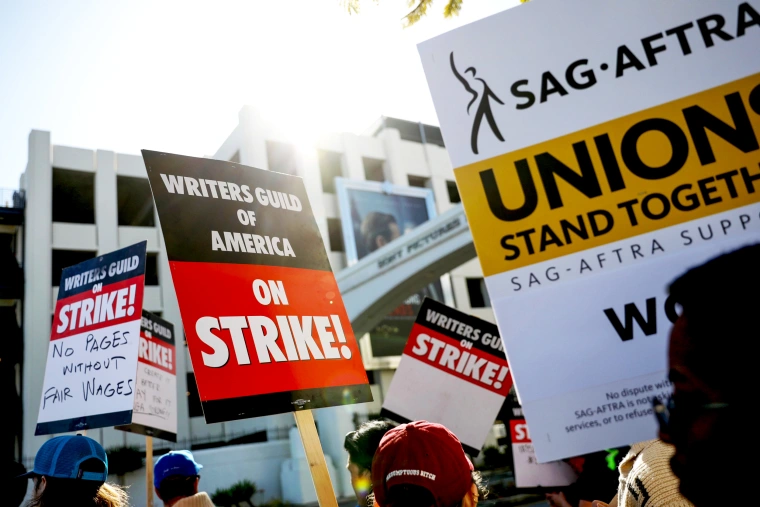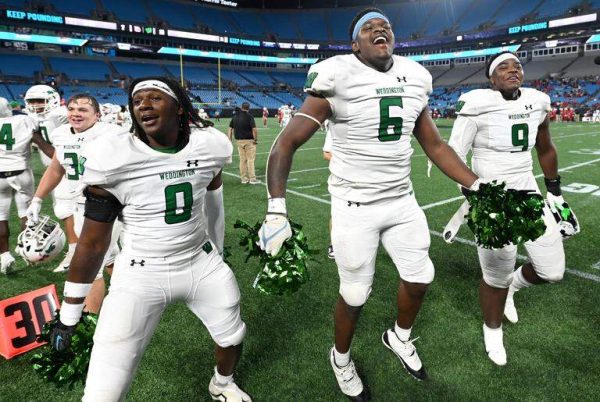The Causes and Ramifications of the WGA’s Recent Strike
June 2, 2023
On May 2nd, after over six weeks of negotiations with the Alliance of Motion Picture and Television Producers, the Writer’s Guild of America, or the WGA, went on strike, the first one in fifteen years. Their main complaint: the new era of streaming in television and movies has caused writers to be slighted in terms of pay and overall benefits and credit.
Motivations Behind This Year’s Strike
The WGA is a labor union composed of over 11,000 writers who write for tv shows, movies, video games, documentaries, and almost every other type of media. The Guild has been integral to entertainment for decades, but with the rise of the new streaming era, the writers have begun to bring up the decline in wages they have experienced, among other things. In fact, in the last five years, the WGA has reported a 14% decline in pay for writers.
Some of the factors that the WGA was attempting to negotiate about before striking were compensation for the lack of reruns on streaming services, compensation regarding the ever-decreasing number of episodes in the majority of current tv shows, and reassurance that artificial intelligence will not be used to finish scripts or duplicate them at the expense of writers. Seeing as most of the conditions were not agreed upon, the Guild decided they were going to strike.
Past Success
The last time the WGA went on strike was around 2007, a time that proved evolutionary in the entertainment industry. Though the strike only lasted about thirteen weeks, at the time, there were no streaming services to allow for people to have access to reruns, so companies had to put out new content to earn money. This led to an exponential increase in the amount of reality shows that were put out, leading to the emergence of well-known stars such as the Kardashians. Shows that relied heavily on writers either cut seasons short or tried to continue on without the writers, which led to a major “crisis” in the industry.
Major companies such as Universal and Paramount eventually gave into the pressure, but only after they lost hundreds of millions of dollars. This is exactly what the WGA is hoping to replicate this time around, but they will hope to expedite the process this time.
The Ramifications
The first programs affected were late night television shows such as those hosted by Jimmy Kimmel, Jimmy Fallon, Stephen Colbert, et cetera. Saturday Night Live was also halted. However, as the strike goes on, more and more shows are being affected. Stranger Things, Cobra Kai, Abbott Elementary, The Last of Us, and The Handmaid’s Tale are just some of those shows. Major studios have scripts stored for occasions such as this, so the effects might not manifest themselves quite yet, but if requirements are not met and agreements are not made, then the effects could be detrimental.
The strike has been going on for over three weeks, and there is no telling when it will end. All that we can say is that hopefully both sides will finally come to an agreement and viewers can once again enjoy well-written entertainment while knowing that the conditions behind the scenes were fair and agreed upon.









